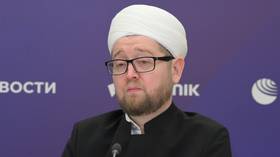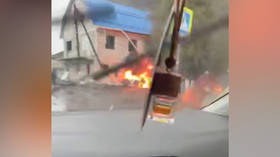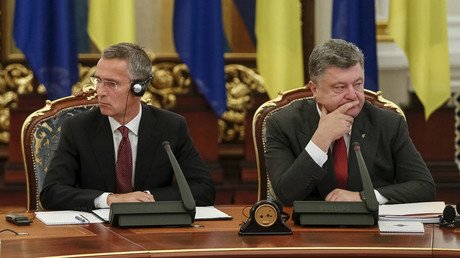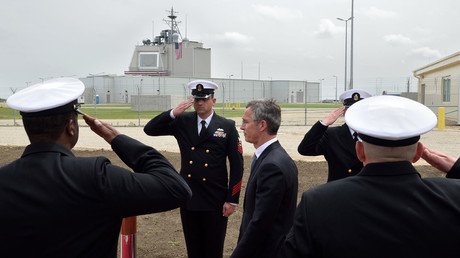NATO-Russia relations 'rolling back to Cold War,' Kremlin says
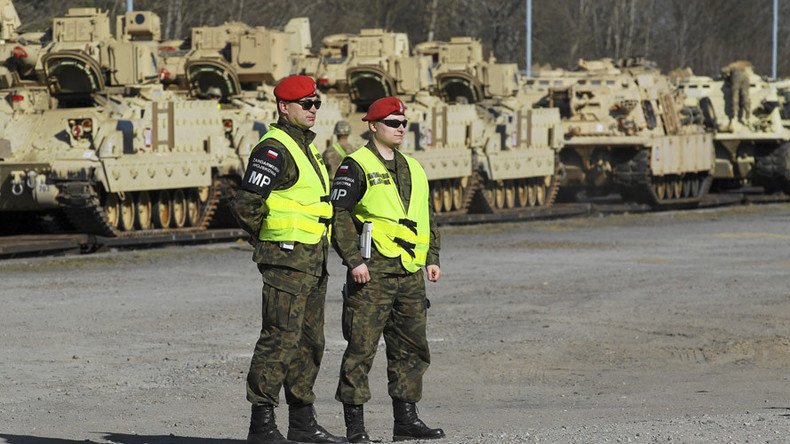
Russia is alarmed at NATO’s continuing expansion in Eastern Europe and the Baltics, the Kremlin's spokesman has said, adding that Moscow will act to safeguard its interests and security but will do this in a “predictable and systematic way.”
NATO-Russia relations are “quickly rolling back” to that of the Cold War era because of outdated NATO rhetoric, Kremlin spokesman Dmitry Peskov said.
The Cold War rhetoric is embedded so deep within the alliance that "we were mistaken in thinking it was a thing of the past," he added.
URGENT: US missile defense system in Romania 'threat to Russia's security' - Kremlin https://t.co/GSPObYu2RZpic.twitter.com/QGIdWsdXWv
— RT (@RT_com) May 12, 2016
“NATO is a product of the time of confrontation. It is an instrument created for confrontation. What contribution it can make to ensuring European stability and security is disputable,” Peskov told journalists on Monday.
“We are still alarmed over the expansion of NATO presence and the bloc's ongoing enlargement towards our borders. This is a source of concern for Moscow and is the reason for a series of predictable, systematic and consecutive steps which Moscow is taking to safeguard its security interests under the current circumstances,” Peskov said.
Beware what you wish for: Russia is ready for war (Op-Edge by Pepe Escobar) https://t.co/g7851kugCupic.twitter.com/7mwsNazmXN
— RT (@RT_com) May 23, 2016
The statement from the Kremlin spokesman comes after the head of NATO said that the alliance is ready to repel aggression against one of its members in Eastern Europe.
“The signal of having a multinational presence sends a very clear signal… that an attack on one ally would be an attack on the whole alliance,” NATO Secretary General Jens Stoltenberg told reporters on May 21.
‘Ludicrous to believe NATO missile defense in Eastern Europe not targeting Russia’ (Op-Edge) https://t.co/9QA09Y3yxQpic.twitter.com/4M6fFdKqwH
— RT (@RT_com) May 15, 2016
"Some allies, namely the US, UK and Germany, have already declared the willingness to strengthen the Eastern flank," Stoltenberg said.
Last week at a pre-ministerial press conference, the NATO secretary general said that the NATO military buildup on the territory of Eastern European countries is a response to “Russian aggression in Ukraine.”
Warmongering in Warsaw: EU gives Poland greenlight to ramp up tensions with Russia (Op-Edge) https://t.co/8SpH6S6UV8pic.twitter.com/rbkr8XVSXx
— RT (@RT_com) April 20, 2016
“I strongly believe that those in Moscow understand that in the long run they will gain more from cooperating with NATO and the European Union and the West than confronting us,” Stoltenberg said, adding that the alliance’s approach to Russia strikes “a balance between military strength, determination, deterrence and political dialogue.”
“We have tripled the size of the NATO Response Force and we have created a new High Readiness Force and now we are moving forward with increased forward presence in the eastern part of the alliance,” he said.






